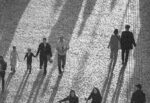Warsaw reading education in the age of digital revolution
Dynamic socio-political change and the constant access to information are both the cause and effect for each other. Leisure time is usually pierced by notifications of breaking news and reports from the global village. The strain and fatigue experienced by its inhabitants reinforces the idea that reading literacy can be understood in at least two ways. The ability to designate, i.e. to read a text in its technical sense, including reading aloud and with impeccable diction, does not necessarily imply deep processing and contestation. How is the digital revolution, also known as the information revolution, transforming reading practices as we know them? Which of the diegetic worlds are young people eagerly visiting and which are no longer accessible to them?
The different perceptions of reading among the representatives of the various institutions operating in the field of reading education heighten uncertainty about how to practise it and multiply the different perspectives. The Reading Education Research Project, which we are conducting in collaboration with the Culture Bureau of the City of Warsaw. This is an opportunity to look at them and juxtapose them with an interdisciplinary reflection on the reading competences of today’s readers.

Four stages of the research
The research plan consists of four stages. The first was to look at existing initiatives and practices implemented and developed by practitioners working in libraries, schools, community cultural centres and other organisations, as well as by the economic actors involved. A survey of background data enabled us to compile a list of 250 national and Warsaw-wide reading initiatives for children and young people. We paid particular attention to their form, the authors and the age of the target groups.
On this basis, in the second stage we selected a group of ten experts — educators, activists, researchers, publishers, neurodidactics specialists and academics — whom we invited to participate in individual in-depth interviews conducted by the WOK research team. Next we organised five focus group interviews (FGIs), inspired by the documentary method, with the groups closest to actual educational practice, i.e. librarians, primary and secondary school teachers and 7th and 8th grade students. An innovative approach to educational research was proposed by Magdalena Dudkiewicz, Ph.D., researcher and assistant professor at the Department of Cultural Research Methods, Institute of Applied Social Sciences, University of Warsaw, who conducted the interviews.
The next stages of our process will be devoted to analysing the collected material and systematising the findings, which will allow us to propose a package of recommendations. We will present them in the form of a practical toolkit brochure, addressed to groups working in the field of reading education in Warsaw. We are also planning an open seminar to recapitulate the study and outline the action points and directions for thinking about reading in the face of the digital revolution.
People involved in the process
Małgorzata Bakalarz-Duverger PhD
Aleksandra Tarka
Miranda Zarzycka






